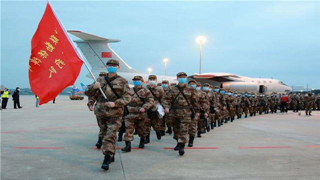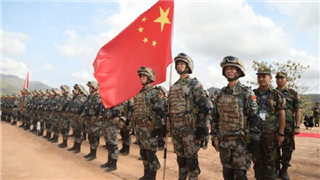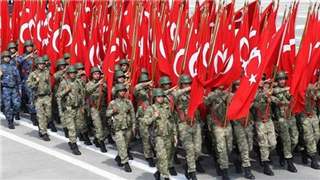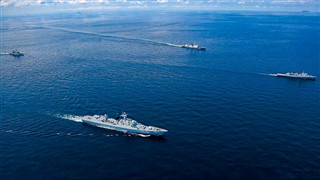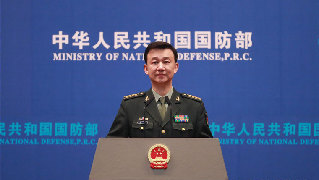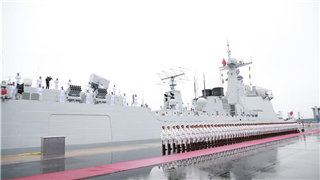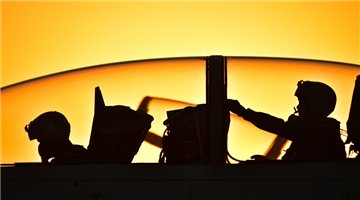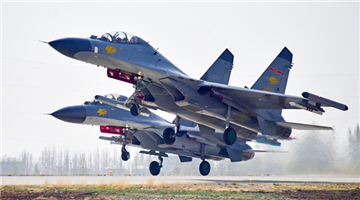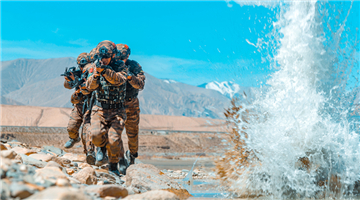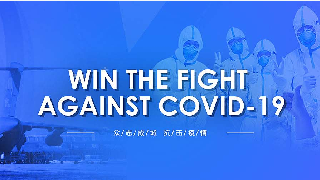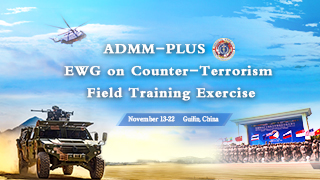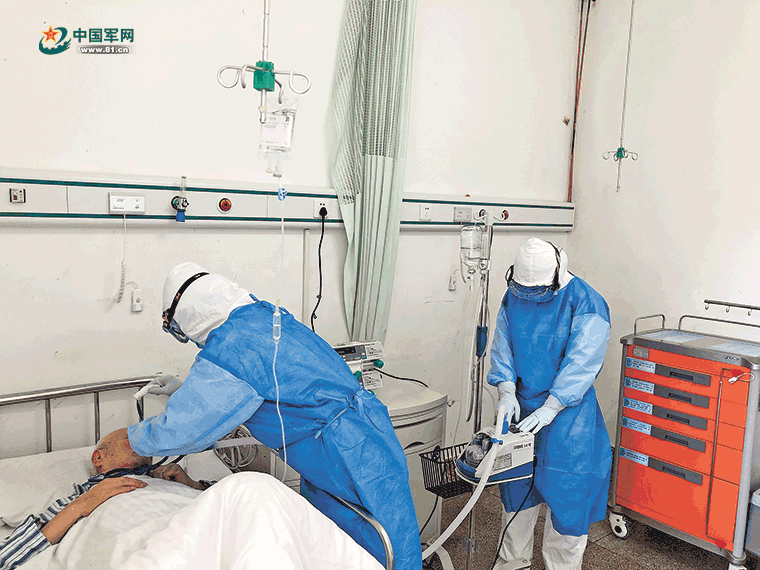
My father was an ace fighter pilot in the air force.
When I was five years old, he was transferred to work far from home. From age five to sixteen, my memories about him have always been his standing on the platform of the railway station in uniform. I will never forget the moment that he rushed toward me when I eagerly waited for him outside the exit of the station.
My father seldom talked about the emergencies he encountered in flight missions and the medals he won in those years. Later, I was enlisted in a military academy and also became a military member. On the night before my deployment after graduation, my father showed me an iron box filled with all the military insignias, epaulets and collar ornaments he used to wear. That night, for the first time in my life, he had a serious conversation on the meaning of the military career with me.
When I was a child, I witnessed my father saying goodbye to mother and me again and again; while from that moment on, it changed to be me saying goodbye to my parents. For military families, separation for work is one of the most common things in life.
I. Bravery is a virtue for ordinary people, but a code of professional ethics for service members.
After I began to work at the former PLA Air Force General Hospital, I witnessed how heartbreaking it could be to say farewell to a pilot.
One day, the fighter jet of Uncle Xu, who was also a pilot in the same military unit with my father, crashed in a flight drill. He was sent to my hospital. Uncle Xu is an intimate friend of my father and lives next door to my parents’ apartment. The moment I heard the accident on the phone, I couldn’t help but burst into tears. When I saw him lying in the ICU ward, buried in various kinds of life support equipment, I felt an indescribable pain.
In the eyes of others, Uncle Xu is a hero. But in my view, he is just an ordinary man and a service member who has no time to take care of his family, just like my father. The night before the accident, he had dinner with his family and fell into a quarrel with his daughter on her study. When his daughter went to have a night class later, she totally had no idea that the quarrel had been within an ace of the last quarrel in her life with her father.
On another occasion, Pilot Zhao Quanxin and his co-pilot encountered a rare low-altitude bird impaction during a night flight. The accident damaged the engine of their plane, making a normal landing impossible. At the time, their jet fighter was only 90 meters above the ground. Instead of escaping through parachuting, the two brave pilots risked their lives to perform a crash landing. It took only 16 seconds for them to land the plane from the time when they found the engine was damaged.
That day, Pilot Zhao Quanxin’s wife, who was then in the eighth month of her pregnancy, felt unexplainable anxiety at home. For the first time, she called the regiment during the flight training time to inquire about the situation.
As Zhao called his wife when he was in an ambulance, he lied, “I have completed the flight mission, but I need to work extra time.” At that moment, he didn't know that his wife had been informed of the accident. Out of the deep concern for each other, Zhao and his wife kept acting. His wife replied, “Just do your work, and I'm going to sleep.”
Later, I asked Zhao what was in his mind when the plane was about to crash. “The first thing I thought of is that I had to brief on the accident in face of the entire regiment,” he replied.
The two pilots were granted the Second-Class Merit Citations for their outstanding performance in handling the emergency. Zhao became a hero in the regiment. Even so, he continued to participate in regular training every day, and he would also be criticized by his superiors when he didn’t perform well.
II. Service members' love is always deep and eternal, whether they are to break through bramble and thistle, or being trapped in solitude.
Some pilots' stories of bidding farewell to the families may not be so breathtaking, but their untold love would tug on people's heartstrings deeper. The story that a female medic told about the homesickness of a group of airmen is the most heartbreaking tale I have heard.
In 1997, my colleague, 34-year-old Liao Jingli, served as a military medic at an Air Force hospital in western China's Xinjiang Uygur Autonomous Region. One time, she conducted a medical mission to a grassroots airbase. Located in a deserted place, the airbase was garrisoned by a group of airmen.
The day she arrived at the airbase, a pilot murmured to her, “Doctor Liao, come on please. I want to show you something.” With curiosity, Liao followed him upstairs and found a dozen airmen watching through a window of the building. What were they looking at? Liao looked afar too. There was nothing but the vast desert extending to the horizon.
One of them pointed at a section of railway in the distance and said slowly, “Running along the tracks is the only train heading outside. Every time we think about home, we will come here to watch the passing train. Even if there was no train passing, we will feel better by just watching the empty railroad.”
When a military train actually passed, these airmen leaned against the wall, quietly watching the railway extending from west to east. At that moment, no one talked.
Later, I joined a medical team to the desert. Shouldering a heavy backpack and standing at the railway station on the south edge of the Badain Jaran Desert, I experienced what Liao had experienced then.
Deep in the desert of northwestern China, we met pilots Li Hao and Lu Donghui. Over the past 30 years, Li Hao has been transferred to different garrisons, with living conditions more and more arduous. Lu Donghui once won the Golden Helmet award in the Freestyle Air Combat Competition of the Chinese PLA Air Force. In the eyes of ordinary people, they are elite pilots. In this newly established military unit, each of them lives in a small room without a private toilet. The room is only furnished by a bed, a desk and a chair. These are all what they have.
There, I also met many other young pilots and had a glance at their daily lives. They thought about their cruel, strict training, their dreams for career development, and their brainstorming of various issues. No one ever complained about hardship and solitude. They are young and confident, in high spirits and fearless to try, despite the obstacles ahead.
III. I’m not a hero. I’m a soldier.
A movie line once impressed me deeply: “It is an unbearable burden to be called a hero. I’m not a hero. I’m just a soldier.”
At a graduate paper conference at a flight academy, the instructor asked the last question: how many missiles does a J-5 fighter jet carry?
The cadet answered according to the textbook, but the instructor told him seriously that the actual payloads were always one more than the standard answer, that is, once your missiles are used up and the enemy remains a threat to your motherland and its people, you and your plane would be the last “missile.”
It is natural for one to seek benefits and avoid dangers. Everyone has the right to avoid dangers in the face of emergencies, but service members usually choose to confront the danger. What are their drives behind the dedication and sacrifice?
It is not impulse. Border guards stay in the high-altitude areas with extremely cold and anoxic conditions for decades.
It is not money. Holding the strong belief, true soldiers will not sacrifice their lives for money.
It is not purely the honor. Many nameless martyrs never expected their names to be remembered in history when they sacrificed their lives.
Behind their dedication and sacrifice, is the power of faith.
